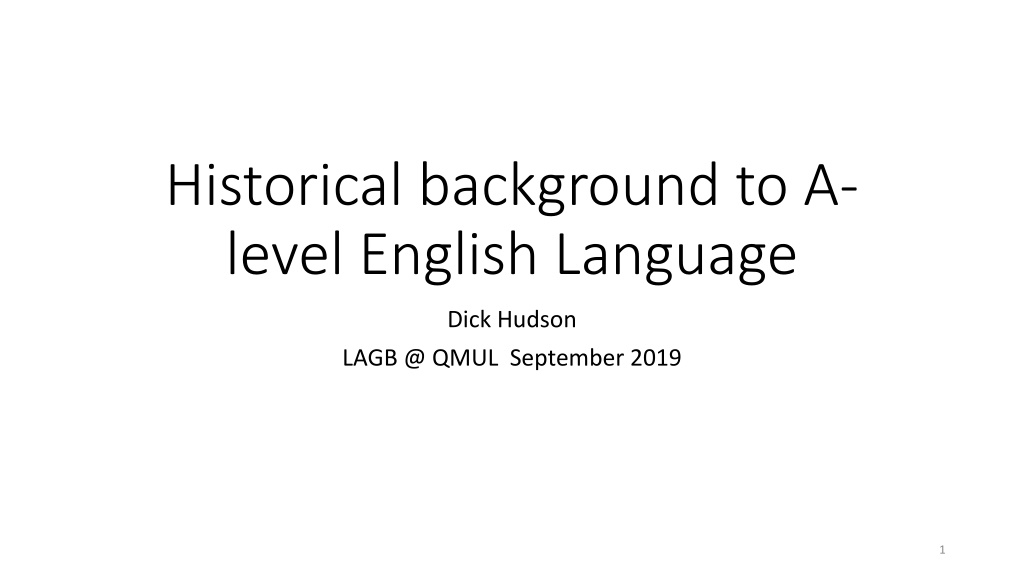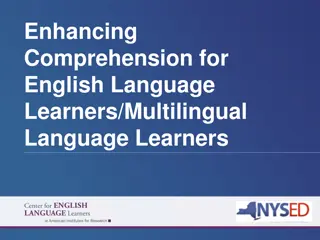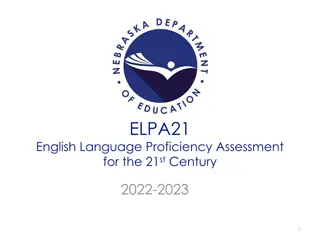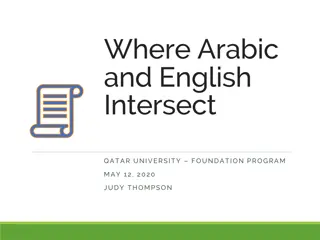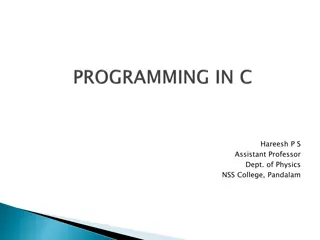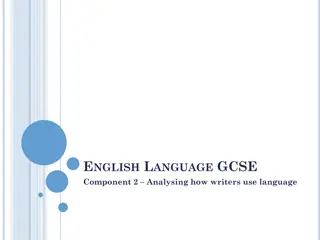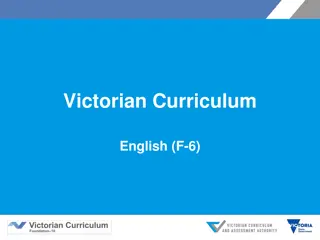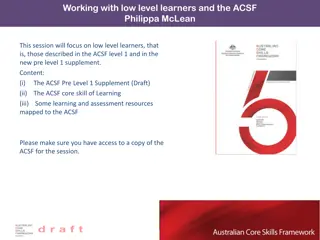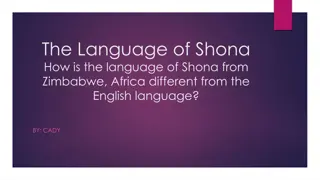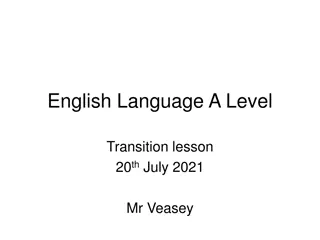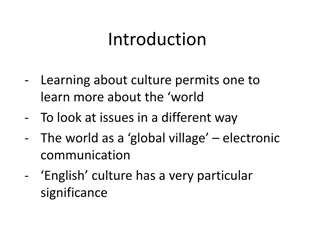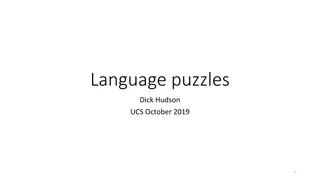Historical Background to A-level English Language
In these slides, the historical background to A-level English Language is explored, focusing on significant figures such as Randolph Quirk, Michael Halliday, and Sydney Katharine Perera. Quirk's 1964 publication highlights the challenges in English language education and the need for improvements in teaching and examinations to break the vicious circle hindering progress. Despite initial despair, efforts are being made to modernize courses and examinations while addressing the shortage of qualified teachers.
Download Presentation

Please find below an Image/Link to download the presentation.
The content on the website is provided AS IS for your information and personal use only. It may not be sold, licensed, or shared on other websites without obtaining consent from the author. Download presentation by click this link. If you encounter any issues during the download, it is possible that the publisher has removed the file from their server.
E N D
Presentation Transcript
Historical background to A- level English Language Dick Hudson LAGB @ QMUL September 2019 1
History of the history These slides were originally used in a celebration of the life of Randolph Quirk. We should be aware of three significant figures in A-level Eng Lang Randolph Quirk (1920-2017) UCL Michael Halliday (1925-2018) UCL then Sydney Katharine Perera (1943-2016) Manchester 2
Quirk on education: 1964 The English Language Problem in English in Education (published by NATE = National Assn for Teaching English), volume 1 It seems to be a matter of common consent that the teaching of English Language in this country is seriously unsatisfactory. But it is one thing to agree on this, and quite another to agree on a remedy or a priority among remedies. Criticism is generally focussed upon the 0 Level Examination in English Language ... Some observers even claim that English teaching and the pupils' use of English alike are actually harmed by the 0 Level examination, and that we would be better off if the mother tongue were not a classroom subject at all. 3
A vicious circle Others seek ways of improving the examination and the teaching that leads to it but are speedily confronted by the most vicious of vicious circles and the acute problem of where the circle is to be broken. The schools say that improvement can come only when there is a supply of teachers (and examiners) who have been trained on the new lines ... Departments of Education disclaim responsibility by pointing out ... that they can do little ... with trainees ... with Honours degrees in English which have little or no language component ... University English Departments in turn complain that freshmen come up ... after two or three years in a literature-orientated sixth-form - rather thoroughly predisposed to disfavour language study of any kind. The charge has now ricocheted back to the schools. 4
Despair sets in It would be easy to devise a thoroughly modernised 0 Level course and 0 Level examination that would be theoretically desirable in all respects... a new A Level examination which included a compulsory language component; a new Honours degree syllabus that gave a thorough grounding in the application of modern linguistic science to the English Language; ... But such root-and-branch change would be ineffectual while there is a desperate shortage of men and women who could teach such courses - at anyof the educational levels here mentioned.... There is little hope, in short, for any radical and rapid breaking of the vicious circle. 5
And yet ... But the circle is of course being broken. Several universities now offer English Honours students courses that readily link up with the problem of teaching the mother tongue in a new key, and many schools now have teachers who are capable of doing extremely interesting work with fifth and sixth formers which reflects the thinking of English linguists from Henry Sweet onwards. 6
Towards an A-level in English language ... to suggest the form and scope of a possible A Level English Language paper. 7
Exploring texts List the instances of passive voice in either A or D, discussing what you think may be the effect of selecting the passive as opposed to the active in these instances. Examine the kinds of metaphor you find in A and D, illustrating the distinctions you make; discuss with some linguistic precision the point at which a metaphor is to be regarded as a clich . List and discuss some colloquial features in C that you would not expect to find in A, and some formal features in A that you would not expect to hear in familiar conversation. 8
Exploring the system Carefully explain the difference in grammar between (a) He returned a new man andHe returned a new suit. (b) He found his cousin a flat and He found his cousin a bore. (c) A stainless steel cooker and A stainless linen cloth. Why is mathematics regarded as an ideal language? Discuss some of the ways in which it seems superior to ordinary English, and some of the ways in which it seems inferior. 9
And how did the story end? 1983: A-level English Language was born (in Manchester). 1989-92: LiNC (Language in the National Curriculum) project for CPD on English in preparation for the new NC, with its greater emphasis on KAL. 2015: Eng Lang + Eng Lang & Lit = 48,000 entries [see next slide] so there are enough competent teachers for A-level. 2013: Grammar is tested in primary schools so some primary teachers also know some grammar. 2014: GCSE English language could ask about language But ... GCSE English language is still seriously unsatisfactory . More generally, the curriculum contains very little language analysis. University English departments still tend to ignore language. English and MFL are still not collaborating. 10
Trends: ups and downs of language education UKLO started FL down EngLang up 11
Consequences for linguistics BA all lg ed (Eng Lang or FL) 52,000 More monolingual intake. Reduced total language intake. BUT UKLO may help? 50,000 48,000 46,000 44,000 42,000 40,000 38,000 12
